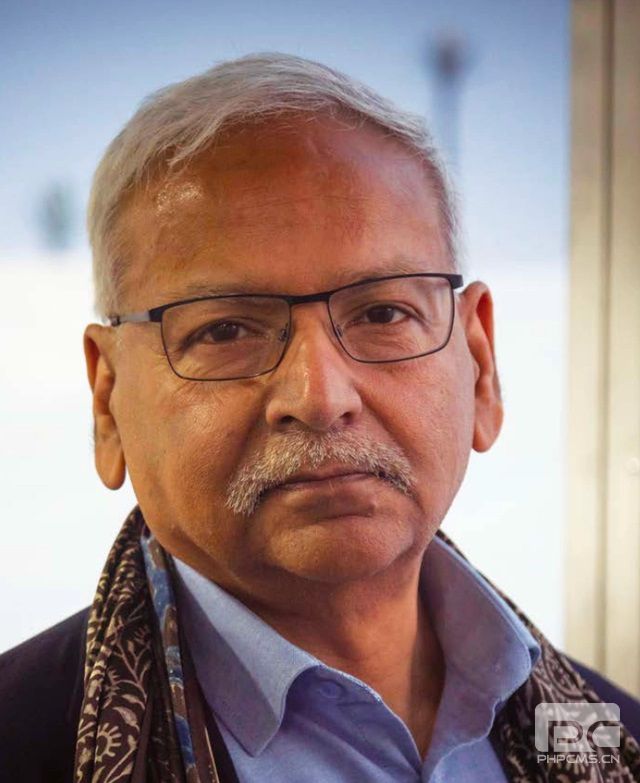Saleemul Huq, a prominent climate scientist hailing from Bangladesh who dedicated his life to raising awareness and driving action on climate change adaptation in impoverished nations, passed away due to cardiac arrest at the age of 71.

Huq's legacy is marked by his relentless focus on the welfare of the poor and marginalized, emphasizing that climate change impacts individuals, their health, and their livelihoods, stated Kristie Ebi, a climate and health scientist at the University of Washington and a close associate of Huq.
Based in Dhaka, Huq founded and directed the International Centre for Climate Change and Development, and was instrumental in the establishment of the International Institute for Environment and Development in London. His educational contributions extended to universities in both England and Bangladesh. He was an early advocate for community-driven strategies to address the adverse effects of climate change in less affluent nations.
In 2022, Queen Elizabeth II conferred the Order of the British Empire upon him, recognizing his exceptional contributions.
"As a dual Bangladeshi and British citizen, I have been working for two decades to enhance collaboration between the universities and researchers in both countries to tackle the twin global challenges of poverty eradication and dealing with climate change," expressed Huq upon receiving the honor.
Huq authored numerous scientific and popular articles and was acknowledged by the prestigious scientific journal Nature in 2022 as one of the world's top 10 scientists.
Climate Action Network's Harjeet Singh paid tribute to Huq on X, formerly known as Twitter, acknowledging his unwavering commitment to those affected by climate change and his advocacy for the most impoverished and vulnerable populations.
For many years, Huq actively championed the establishment of a loss and damage program for developing nations severely affected by climate change, funded by wealthier nations that bear significant responsibility due to their emissions. While the United Nations climate negotiators endorsed the creation of such a fund last year, efforts to operationalize it have faced obstacles.
Huq's lasting influence was felt through his initiation of Adaptation Days, a 20-year tradition that provided a special platform for discussing climate change adaptation during the United Nations climate negotiations, also known as Conferences of Parties (COPs). He commenced this tradition by inviting a rural Bangladeshi farmer to share her experiences at the high-level negotiations. Today, this has evolved into a multi-day event dedicated to adaptation, as noted by Joel Smith, a former U.S. Environmental Protection Agency official and friend of Huq.
During COPs, Huq was in high demand, engaging in discussions with numerous individuals. His colleagues would humorously say that "Saleem is everywhere...he's just not here" when they couldn't locate him at his temporary office, as shared by Ebi. His presence drew people to engage in climate negotiations.
Joel Smith and Kristie Ebi underscored Huq's commitment to fostering young scientists from developing nations, helping them connect with peers and mentors. Ebi observed, "Much of the nature of the negotiations today has to do with all the scientists from least developed countries who went through Saleem's training program."
Saleemul Huq is survived by his widow, a son, and a daughter.

Huq's legacy is marked by his relentless focus on the welfare of the poor and marginalized, emphasizing that climate change impacts individuals, their health, and their livelihoods, stated Kristie Ebi, a climate and health scientist at the University of Washington and a close associate of Huq.
Based in Dhaka, Huq founded and directed the International Centre for Climate Change and Development, and was instrumental in the establishment of the International Institute for Environment and Development in London. His educational contributions extended to universities in both England and Bangladesh. He was an early advocate for community-driven strategies to address the adverse effects of climate change in less affluent nations.
In 2022, Queen Elizabeth II conferred the Order of the British Empire upon him, recognizing his exceptional contributions.
"As a dual Bangladeshi and British citizen, I have been working for two decades to enhance collaboration between the universities and researchers in both countries to tackle the twin global challenges of poverty eradication and dealing with climate change," expressed Huq upon receiving the honor.
Huq authored numerous scientific and popular articles and was acknowledged by the prestigious scientific journal Nature in 2022 as one of the world's top 10 scientists.
Climate Action Network's Harjeet Singh paid tribute to Huq on X, formerly known as Twitter, acknowledging his unwavering commitment to those affected by climate change and his advocacy for the most impoverished and vulnerable populations.
For many years, Huq actively championed the establishment of a loss and damage program for developing nations severely affected by climate change, funded by wealthier nations that bear significant responsibility due to their emissions. While the United Nations climate negotiators endorsed the creation of such a fund last year, efforts to operationalize it have faced obstacles.
Huq's lasting influence was felt through his initiation of Adaptation Days, a 20-year tradition that provided a special platform for discussing climate change adaptation during the United Nations climate negotiations, also known as Conferences of Parties (COPs). He commenced this tradition by inviting a rural Bangladeshi farmer to share her experiences at the high-level negotiations. Today, this has evolved into a multi-day event dedicated to adaptation, as noted by Joel Smith, a former U.S. Environmental Protection Agency official and friend of Huq.
During COPs, Huq was in high demand, engaging in discussions with numerous individuals. His colleagues would humorously say that "Saleem is everywhere...he's just not here" when they couldn't locate him at his temporary office, as shared by Ebi. His presence drew people to engage in climate negotiations.
Joel Smith and Kristie Ebi underscored Huq's commitment to fostering young scientists from developing nations, helping them connect with peers and mentors. Ebi observed, "Much of the nature of the negotiations today has to do with all the scientists from least developed countries who went through Saleem's training program."
Saleemul Huq is survived by his widow, a son, and a daughter.




Copyright © 2023.Yooke studio All rights reserved.
PKWEEKLY NEWS











